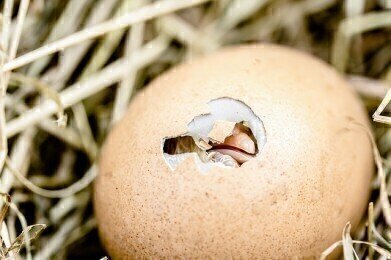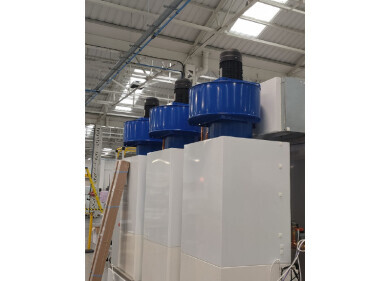Laboratory Products
What Are No-Kill Eggs?
Jan 25 2019
With the recent planetary health diet claiming to feed 10 billion people and save 11 million lives a year, the buzz around plant-based eating has never been louder. Now, German scientists have taken the concept one step further and developed the concept of 'no-kill' eggs, which relies on science to determine the sex of a chick before it hatches.
Known as the “Seleggt” process, the patented technology can verify the sex of a chick just nine days after egg fertilisation. Any male eggs are then reprocessed as animal feed, while female eggs are left to continue developing as part of the 21-day incubation period. While the process has received its fair share of criticism, the team claims Seleggt can solve the modern poultry farming issue of having to cull billions of male chicks that can't produce eggs.
Poultry industry responds to consumer kickback
Over the past few years the issue of chick culling has gained momentum, with controversy fuelled by viral videos exposing chick shredding machines. From an economic perspective male chickens lay no eggs and simply don't grow fast enough to justify the cost of raising them for meat. As a result, they are quickly destroyed. However, recent kickback from consumers has sparked an international race to develop a solution that's both humane and economical.
In response, Seleggt managing director Dr Ludger Breloh and his team engineered an automated machine designed with hatcheries in mind. Similar to a pregnancy test, it uses a chemical marker detects high quantities of hormones associated with female eggs. It does this by using a laser beam to burn a 0.3mm-wide hole in the shell then using air pressure to extract a drop of fluid. The process takes just one second per egg and ticks all the boxes, being easy to use, scalable, hygienic and fast. It also boasts a 98.5% accuracy rate.
Ethical eggs hit German supermarket shelves
The first batch of no-kill eggs has gone on sale in Berlin, with Breloh maintaining, “If you can determine the sex of a hatching egg you can entirely dispense with the culling of live male chicks.” Breloh fronted the four-year programme which was commissioned by Rewe Group, a leading German supermarket brand. The goal was to make the company's own-brand eggs more sustainable, more ethical and more appealing to the German market.
“It’s not about winning or losing,” says. “We all have the same goal, which is to end the culling of chicks in the supply chain. Of course, there’s competition, but it’s positive in that it keeps us all focused on that goal.”
Scientists are continually developing new ways to improve ethics and heighten food safety. For a behind-the-scenes look at the latest developments don't miss 'Safe and Efficient Cryogenic Grinding of Food Samples'
Digital Edition
Lab Asia 31.2 April 2024
April 2024
In This Edition Chromatography Articles - Approaches to troubleshooting an SPE method for the analysis of oligonucleotides (pt i) - High-precision liquid flow processes demand full fluidic c...
View all digital editions
Events
Apr 22 2024 Marrakech, Morroco
Making Pharmaceuticals Exhibition & Conference
Apr 23 2024 Coventry, UK
Apr 23 2024 Kintex, South Korea
Apr 23 2024 Seoul, South Korea
Apr 24 2024 Jakarta, Indonesia

.jpg)






.jpg)









